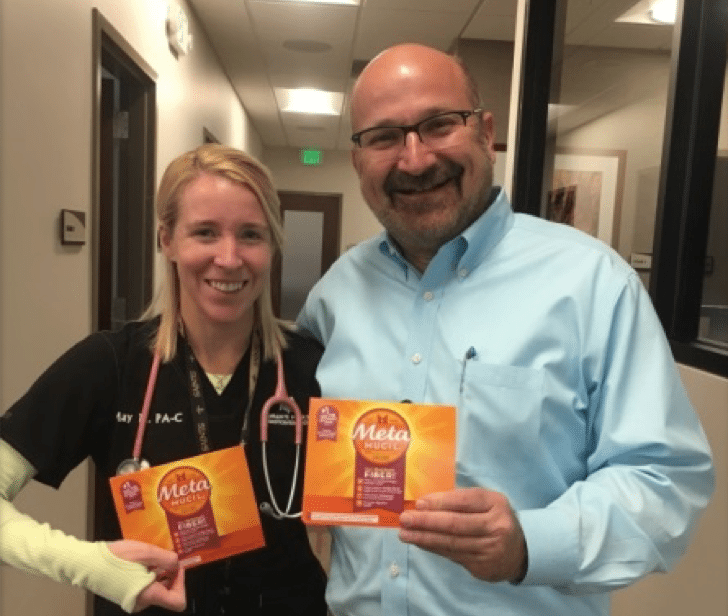By May Marschner, PA and Dr. Andrew Heiner
Fiber, fiber and more fiber…yes, it is important, but did you know it actually helps prevent hemorrhoids and may lower cholesterol?
Most of us know a high-fiber diet has many health benefits, from improving digestion to lowering cholesterol and preventing some diseases. However, most Americans still struggle to get even close to the recommended daily dose of 25-35 grams per day.
Fast Facts
-People who eat enough fiber daily appear to be at a lower risk for developing coronary heart disease, diabetes and high blood pressure.
-There is evidence fiber supplementation in obese individuals enhances weight loss; however, fiber alone should not be used as a weight-loss method.
-Fiber can help improve hemorrhoid irritation, constipation, diarrhea and can improve irregular bowel habits. Consult a doctor before using if you have these symptoms as they may indicate other health issues.
-With the holidays fast approaching and most people eating more and differently than they normally would, now is a perfect time to increase your fiber intake.
Tips from the Experts for Increasing Fiber Intake
-Slowly start to add more fiber to your diet. If you do this slowly, you are less likely to have GI discomfort. Make sure you drink more fluid, mainly in the form of water, when increasing fiber intake.
-Eat more soluble fiber. Soluble fiber absorbs water. It is found in oat bran, barley, nuts, seeds, beans, lentils and some fruits and vegetables. It is also found in psyllium husk, like that found in Metamucil and similar products.
-Eat more insoluble fiber. Also known as “roughage,” insoluble fiber does not dissolve in water and our digestive systems do not break it down. It is found in foods such as wheat bran, nuts, some vegetables and whole grains.
-Avoid processed snacks with lots of added fiber. These types of snacks, such as bars, can cause gas and bloating and can also have a lot of extra sugar.
Fiber Supplementation
If you find it difficult to get enough fiber in your daily diet, you may choose to add a supplement to increase your fiber intake. Fiber powder is a supplementation used to bulk up the stool. There are several types including cellulose, pectin, gum and psyllium husk. You may have heard of or seen Metamucil on the counter at your grandmother’s house. This contains psyllium husk.
Always consult your healthcare provider prior to adding fiber if you are experiencing any gastrointestinal issues. Determining that symptoms are not caused by a significant health problem is important before making any dietary changes. Dr. Heiner is a strong proponent of the fiber supplement, Metamucil (and no, he does not own stock in the company!).
“Metamucil is magic!” Dr. Heiner says, “It can prevent both constipation and diarrhea. Taken in adequate doses, it produces the perfect BM. Everyone is different, but many do best when they double the recommended dose. When you no longer need toilet paper, you’re probably on the right dose for you. There is virtually no downside to taking Metamucil. Those who take it every day for the rest of their lives will not regret it.”
